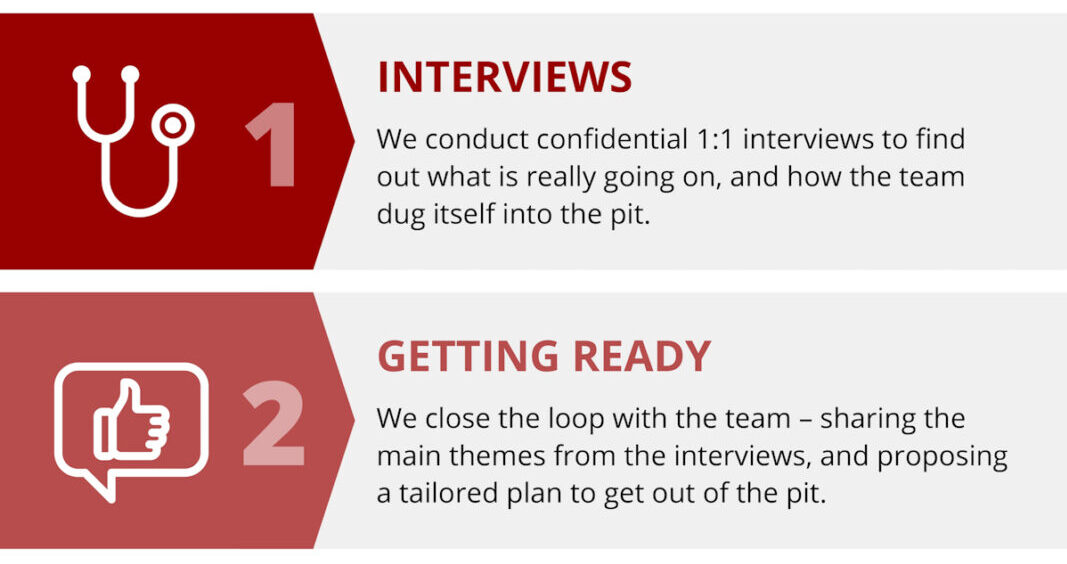How do you transform the dynamics of a team (leadership or otherwise) from dysfunctional to…
The dark side of office politics

Too many organizations don’t practice what they preach… Opinion piece written for Canadian HR Reporter.
Behaving with integrity and maximizing performance have emerged as core elements of organizational credo in commercial, government and non-profit sectors alike. At the same time, office politics remains as prevalent as ever. The big irony is that politics interferes severely with the quest for integrity and performance.
Politics is two-faced, so let me be clear: I am referring here to people playing “dark” politics, the kind driven by the search for personal gains. This is fundamentally different from people leveraging influence networks to reach the organization’s objectives. This is “light” politics. The intent of light politics is first and foremost the good of the organization, not personal benefits.
Engaging in light politics is not only laudable, but also critical to organizational success. That’s because in a constantly evolving economy, the ability to adapt is the key to surviving and thriving. And marshalling support for the necessary changes requires a significant amount of light politics.
However, playing dark politics belongs in the realm of unethical behaviour. To succeed in the game of office politics, one must be willing to plant sharp knives in the back of one’s opponents. Where is the integrity in that?
Sadly, promotions and plum assignments often go to the players who are the most gifted at the game of dark politics. As in the popular reality television show Survivor, those who don’t master the art of deceit, or whose personal values prohibit them from engaging in manipulative behaviour, often end up being voted off the island. In Survivor, however, some of the outcasts make it to the jury. This has a significant impact on the game because it discourages the players from acting too cunningly. Otherwise the jury will make sure they don’t receive the $1-million US prize.
However, in the corporate world, the outcasts often disappear in oblivion, which means the Machiavellian players are left unchecked. Hence, office politics can be worse than Survivor.
Since the Enron-era scandals, organizations have walked the integrity talk by improving their governance structures and financial reporting. But they haven’t done anything meaningful about reining in dark politics. In other words, the reality of the workplace doesn’t match the creed of integrity.
What about organizational performance? Dark politics consumes an inordinate amount of brain power and emotional energy. The intrigues divert everyone’s attention from advancing the business. Therefore it also conflicts with the creed of performance.
Consider the case of Lyle, a manager who rejoined his previous employer after a few years spent at a competitor. During that period, the company had become highly political. Initially, Lyle focused squarely on tackling the challenge for which he had been rehired. But, to his dismay, he soon realized he had entered a nasty game of politics.
His boss and peers were masters at the art of deceit. Lyle’s attention quickly switched from doing his job to playing survival politics, although he wasn’t really effective at it. Not surprisingly, his performance declined. This was a development his adversaries made sure to point out to the boss. Within six months Lyle was let go. His primary opponent summed it up scornfully by saying: “Lyle tried to play politics, but he didn’t know how to play. So, he is gone.”
Not only did the protagonists waste huge amounts of time and energy, so did the employees watching from the sidelines. In the end, Lyle’s misfortune became part of the collective history, therefore reinforcing an already highly political culture.
Allowing dark politics to exist has long-term performance implications, particularly on the talent management front. It has a debilitating effect on a precious group of workers: the competent employees driven by doing what is right for the organization. They become disengaged, they leave or they are pushed out like Lyle.
A political culture also generates leaders who are, well, political. They have seen their boss successfully climb the ladder through cunning. The message is loud and clear: success as a leader requires mastering dark politics.
The more political the culture becomes, the more it reinforces that message and the more political people get. Of course, a political culture also tends to attract “corporate politicians.” So it’s clearly a vicious circle. And when managers play politics, they don’t have enough time for leadership.
The bottom line is that dark politics spells trouble for the organization’s leadership pipeline and its ability to attract ethical talent. Fast forward a decade or so, and the company might become the next Enron.
This is a strategic issue that HR should be very concerned about. As an HR leader, what can you do? Start by doing what leaders do: lead by example. Don’t play dark politics and don’t allow corporate politicians to win the day in HR.
Raise awareness about the light and dark sides of politics. Talk about the importance of the former and the implications of the latter, both immediate and future.
Find out what is really going on out there. Talk to people, probe and observe. Most importantly, when a political employee is being considered for a promotion or plum assignment, have the courage to raise your concerns. If you are not prepared to do this, then at least don’t say the organization promotes integrity and performance. It would just add to the big irony.




This Post Has 0 Comments